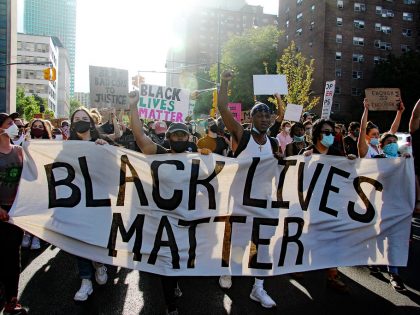
When Americans took a global health crisis seriously
Recalling its Ebola hysteria would help the US better confront COVID-19.

Recalling its Ebola hysteria would help the US better confront COVID-19.

In the shadow of the US election, this Tuesday on AIAC Talk, we talk African immigration to the United States with Abraham Zere and Aya Saed.

The current leadership in Kenya is made up of individuals whose personal interests run through virtually every sector of Kenya’s economy. Including when they negotiate trade deals.

How managing COVID-19 and other crises necessitates Africa’s structural transformation, and what we can learn from the early post-independence development projects.

Growing xenophobic nationalism in South Africa is a danger to African people across the continent.

The anti-Black Lives Matter backlash in South Africa highlights the growing ideological convergence between the far right and conservatives.

Chelsea Stieber and Christopher McMichael talk the growth of right-wing nationalist movements and their ideological roots on AIAC Talk.

How Rwandan history is told—and who does the telling—is important as it determines who is able to participate in conversations about the past.

Americans could learn a thing or two from Africans’ history of resisting structural adjustment policies.

Anti-racism and political contagion from Save Darfur to Black Lives Matter.

For all the PR, Kenya does not pose a serious threat to the five veto-holding permanent members on the UN Security Council.

The labor and political organizing of Somali immigrants in the US Midwest should inspire more Americans to join the broader movement for worker rights and racial equality.

In his new book of his time in the Trump White House, former US National Security Adviser John Bolton shares Trump’s very few thoughts on Africa.

Police violence, racism and the connections between Minneapolis in the United States and Cape Town, South Africa.

The misguided rhetoric of Tanzanian President John Magufuli guides the country's response to COVID-19.

The revival of an elite technocratic rationality is starting to undo South Africa's lockdown, now in its second month.

COVID-19 is teaching us lessons we should have learned from the HIV epidemic.

In South Africa, social distancing to bring down COVID-19 infections takes a decidedly local shape. In a racialized society, it manifests primarily as white melancholia and black Afro-pessimism.

The Ramaphosa Presidency has been praised for its handling of the coronavirus pandemic, but the compensating measures that accompany it are inadequate to protect much of the population.

Pandemics force even neoliberal thinkers to admit government action and collective solidarity are urgently needed.